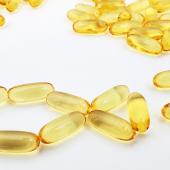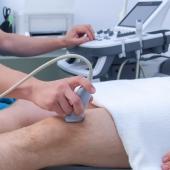High school athletes suffer thousands of concussions every year, most often in football, ice hockey, and soccer. In professional sports, what was once considered a cost of doing business, is now carefully monitored. We have all come to understand that rather than a bump in the head, something to “shake off”, a concussion is a brain injury and unless properly treated, it can have lasting consequences. That’s why it’s important for natural health practitioners to be able to recognize the symptoms of concussion - and provide complementary treatment strategies that help minimize the physical and mental consequences of concussion - and as we will learn today, post-concussion syndrome.
Brain injury can be mitigated by diet. Specifically, a focus should be on good fats. Our brains are largely composed of omega-3 fats, so we want to eat clean fish, avocados, and coconut oil. Such foods are generally anti-inflammatory and neuroprotective. Anti-inflammatory spices are also important; lots of research exists on the Indian spice turmeric, whose active ingredient is curcumin, to assist in the injury healing process.
Key Takeaways
- Understanding Concussion We are looking at three key areas. The first is neurobiological, which is the physical damage to the brain tissue (tearing of the tissues, cellular death). Second, are the neuro-psychiatric symptoms, looking at mood related concerns, PTSD, depression, or anxiety. Lastly, there are neurocognitive challenges with memory, forgetfulness, attention, and the ability to perform a task, for example.
- Symptoms Of Concussion First and foremost, is loss of consciousness. However, if there is no loss of consciousness that does not rule out injury. Symptoms include: mental confusion, nausea and vomiting.
- Post-Concussion Syndrome Symptoms of brain injury will subside over a couple of weeks, but there are also cases that people suffer disorienting symptoms for months. This is termed post-concussion syndrome. Symptoms include chronic headaches, dizziness, inability to perform tasks at work, memory challenges, as well as irritability, anxiety, and insomnia.
- Concussion Checklist A concussion checklist looks at a set of common symptoms on a rating scale of zero to five, to keep score on how patients are doing week-to-week. It is recommended to start with this checklist and then if it looks like there is a case of concussion or post-concussion syndrome, send the patient for scans.
- Holistic Treatment Approaches Depending on their health condition, their inflammatory load, and other factors such as medications, patients’ treatments must be individualized. The conventional treatment then is to go home and rest. Take some pain and/or sleep medication. If patients exhibit whiplash symptoms or other tensions refer out to a physiotherapist or neurologist. If symptoms are really not going away then scans are called for..
- Complementary Treatment Approaches Many of us are dehydrated, so really focusing on hydration is key. Diet is also very important. Research does show that doing things to lower inflammatory loads with the foods you're eating, even going gluten-free, casein-free, or dairy free, can be a benefit. Such foods are generally anti-inflammatory and neuroprotective. Anti-inflammatory spices are important too; lots of research exists on the Indian spice turmeric, whose active ingredient is curcumin.
Sweeteners can be a big disruptor as well, so things like aspartame and Diet Coke, for example, are not great for a healing brain. Methylcobalamin form of B12 is also important, as vitamin B12 in the methyl form helps with methylation, which is a component of detoxification of our brain and nervous system.
Medicinal mushrooms like Reishi are helpful. For stress and immune system function, Lion’s Mane mushrooms have been shown to upregulate brain neurotrophic factors and are great anti-inflammatory agents.
- Omega-3 Fats Omega-3 fatty acids in the diet are really important. Our brains are largely composed of good fats and so eating clean fish, avocados, and coconut oil is key when you have a concussion. Doing an Omega-3 test to obtain an Omega-3 score using a blood test will let you know whether supplementation is called for.
Key Quote
“A clean diet, being well hydrated and taking key supplements like Omega-3s for good fats, vitamin D and maybe some natural anti-inflammatory herbs like curcumin as well as getting good quality sleep is key to recovering from a concussion. And taking time to get out of your head into your body and oxygenate!”
Dr Cameron McItyre
==
The opinions expressed in this Nutramedica program are those of the guests and contributors. They do not necessarily reflect the opinions of Nutritional Fundamentals For Health Inc.
This video is intended for licensed or registered health professionals and students of health professions only. These statements have not been evaluated by the Food and Drug Administration. Information contained in these programs is not intended to diagnose, treat, cure or prevent any disease.



